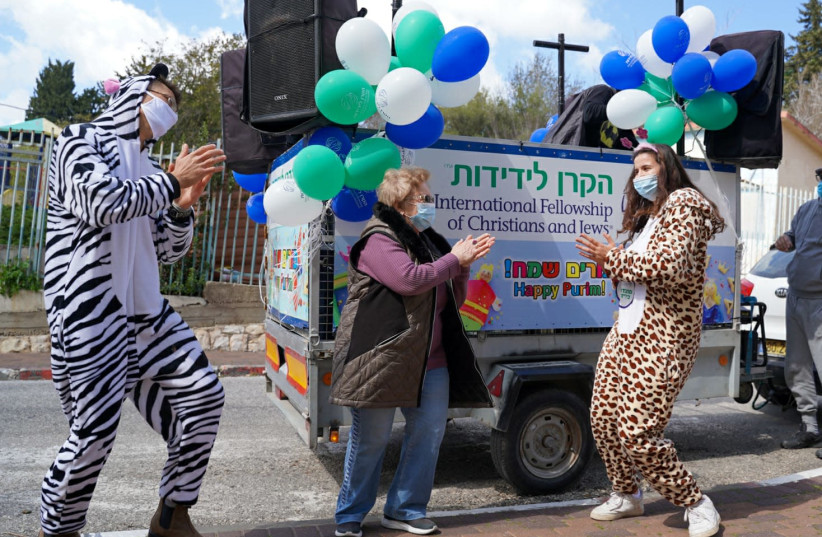At this time of year, organizations of people with goodwill towards their fellow beings are busy packing Passover food parcels for the poor and urging the public to knock at the doors of their elderly neighbors to check on their health, whether they need help in cleaning their apartments or in shopping for necessities, whether they have sufficient food and whether they have been invited to a Seder.
Some of these organizations work in consultation and cooperation with local welfare authorities, seemingly not realizing that people who once had a more affluent lifestyle than they have today are often too proud to ask for help. They value their independence, and even when they have to make crucial decisions between deciding on a purchase of medicine or a purchase of food, they will not give any outward sign of being in need. Thus, they are not on the books of welfare organizations.
But with extremely rare exceptions, every senior citizen of Israel (as distinct from senior residents without citizenship), is registered with the National Insurance Institute (NII) because anyone who was employed before reaching retirement age, automatically receives an old-age pension. This also applies to widowed citizens who were not employed, but whose late spouse was employed. Pensions are also now paid to women who were homemakers and are classified as housewives.
So essentially, anyone looking to help a senior citizen or to at least inquire whether that citizen needs any kind of assistance, should coordinate with the NII and with the Ministry of the Interior, which prior to Knesset elections send out voter entitlement documents to all eligible voters.
Some organizations may indeed do this, but certainly not all, judging by various stories in the Hebrew media where a senior citizen tells the interviewer that no one has been in touch with them and that they haven’t spoken to anyone in a week. If journalists can find such people, there is no excuse for the inability of social workers to do so and to pass on the information to local, community-minded organizations. The Central Bureau of Statistics can provide data on how many senior citizens there are in the country, including their gender and age groups.

Where do they get their information and how is it that so many seniors are overlooked?
Some people may be deterred by the fact that when they walk into the apartment of a senior citizen, they see good quality furniture, and many tasteful and even expensive knick-knacks. They have to be aware of the fact that the occupant of the apartment was once young, used to work and spent his or her money on stylish furniture, vacations abroad and a host of other personal luxuries. Too often, little thought was given to a long-term savings plan or a pension project that would guarantee a reasonably decent income to a retiree.
This is truly a case of not judging a book by its cover.
Most institutions and organizations have email or WhatsApp contacts with their members. It should be fairly easy to send out mass messages asking for volunteers who live in specific neighborhoods to go door-knocking in their streets to deliver food or to go shopping on behalf of someone else.
Whatever works for different groups is the method that should be used.
By the same token, most senior citizens, even if without relatives and living alone, have a computer or a mobile phone with a built-in computer. Such people can be sent a message with questions that include:
Would you like to have someone come visit you?
Would you like someone to come and walk with you in the park?
Would you care to have dinner with someone whom you don’t yet know?
The whole idea behind such questions is to ensure that the recipients maintain their dignity and are not put in a position of feeling like charity cases.
There are so many people who are looking for a mitzvah to perform and so many others who need one.
It shouldn’t be all that difficult to put them together.
